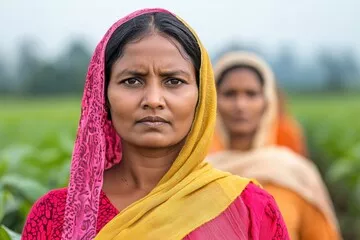India's informal sector is a critical part of the economy, employing over 90% of the total workforce. Within this segment, women form a significant proportion—working as domestic helpers, construction workers, street vendors, agricultural labourers, and home-based workers. Yet, despite their immense contribution, they are largely excluded from formal social security protections, leaving them vulnerable to exploitation, harassment, and insecurity.
Here we will explore the social security schemes available for women workers in the informal sector, their linkage to labour laws, the POSH Act, and the Maternity Benefit Act, while also highlighting the challenges and policy gaps.
1. Understanding the Informal Sector
The informal sector comprises workers who are not covered under formal employment contracts and often lack access to legal protections like minimum wages, paid leave, or health benefits. For women, this lack of formal protection becomes even more critical due to
- Unsafe working conditions
- Irregular wages
- Absence of maternity support
- High exposure to sexual harassment
2. Key Social Security Schemes for Women in the Informal Sector
Below are the schemes for women in the Informal Sector:
i. Pradhan Mantri Matru Vandana Yojana (PMMVY)
A centrally sponsored scheme providing maternity benefits of ₹5,000 in three installments to pregnant and lactating women for their first live birth.
- Eligibility: Applies to informal workers not covered under the Maternity Benefit Act.
- Significance: Helps compensate for wage loss during childbirth and child care.
ii. Building and Other Construction Workers' Welfare Board (BOCW)
For women working in construction:
- Benefits include maternity assistance, health insurance, education support for children, and crèche facilities.
- However, awareness and registration are major barriers.
3. Legal Frameworks Supporting Women Informal Workers
i. The Maternity Benefit Act, 1961
While this Act primarily applies to establishments with 10 or more employees, some states have extended certain maternity protections to unorganised sector workers.
- Key Provisions:
- 26 weeks of paid maternity leave
- Nursing breaks
- Prohibition of dismissal during maternity leave
However, its implementation in the informal sector is patchy. For most women in informal employment, schemes like PMMVY serve as an alternative.
ii. POSH Act, 2013 (Prevention of Sexual Harassment at Workplace)
The POSH Act mandates a safe and secure working environment for women. While most unorganised workplaces lack formal internal complaint committees (ICCs), the law requires
- Local Complaints Committees (LCCs) at the district level to address grievances in the unorganised sector.
- Employers' responsibility, including community leaders or self-help group heads in rural areas, to raise awareness.
Challenges:
- Lack of awareness among informal workers about their rights under POSH
- Poor functioning of LCCs
- Social stigma and fear of retaliation
iii. Code on Social Security, 2020
Aims to unify and simplify existing social security laws. It brings the unorganised sector, gig, and platform workers under its purview.
- Proposes welfare schemes funded by government contributions and employer cess.
- Encourages registration of informal workers on the e-Shram portal for access to benefits.
Conclusion
Empowering women in the informal sector with robust social security is not just a welfare measure—it's a constitutional and human rights obligation. Ensuring safe workplaces under POSH, maternity protection under the Maternity Benefit Act, and inclusive coverage under labour laws and welfare schemes will go a long way in enabling dignity, safety, and economic independence for millions of women.

Comments